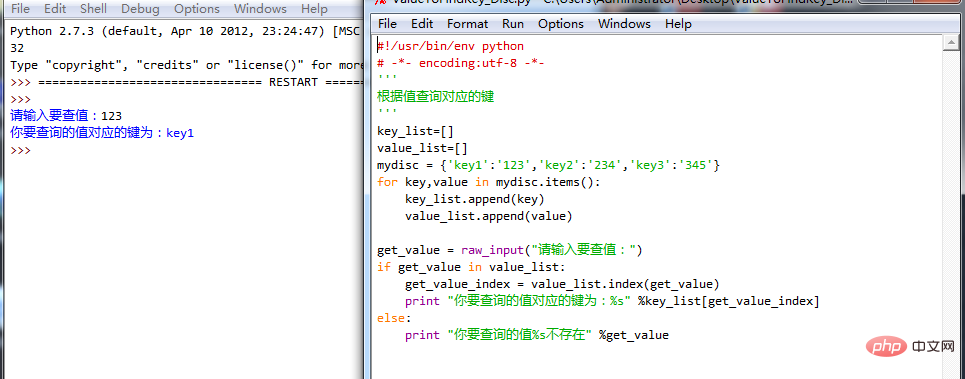
If no modification to the dictionary occurs during the iteration process, the dict-view objects returned by the two functions .keys() and .values will always maintain a corresponding relationship. The following is an introduction to how python dictionaries return keys based on values.

>>> dicxx = {'a':'001', 'b':'002'}
>>> list(dicxx.keys())[list(dicxx.values()).index("001")]
'a'
>>>The value in the dictionary does not guarantee uniqueness, so what is found based on the value is a list. However, the key value in the dictionary is unique, so the only value can be found based on the key.
Example:
#根据值查询对应的键
key_list=[]
value_list=[]
mydisc = {'key1':'123','key2':'234','key3':'345'}
for key,value in mydisc.items():
key_list.append(key)
value_list.append(value)
get_value = raw_input("请输入要查值:")
if get_value in value_list:
get_value_index = value_list.index(get_value)
print "你要查询的值对应的键为:%s" %key_list[get_value_index]
else:
print "你要查询的值%s不存在" %get_valueRelated recommendations: "python video tutorial"
Display results:

The above is the detailed content of How to return keys based on values in python dictionary. For more information, please follow other related articles on the PHP Chinese website!